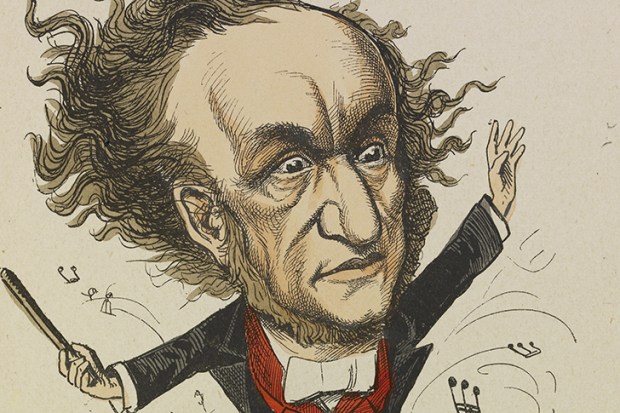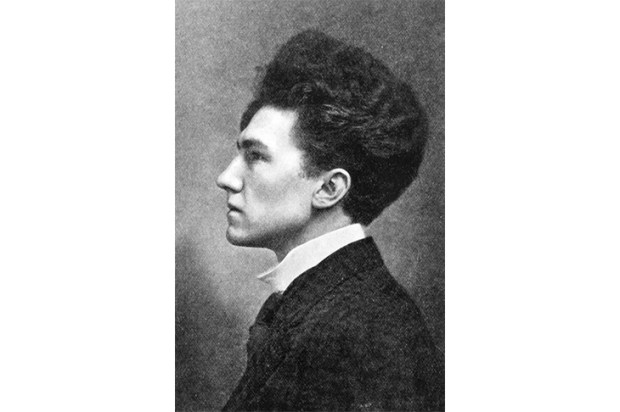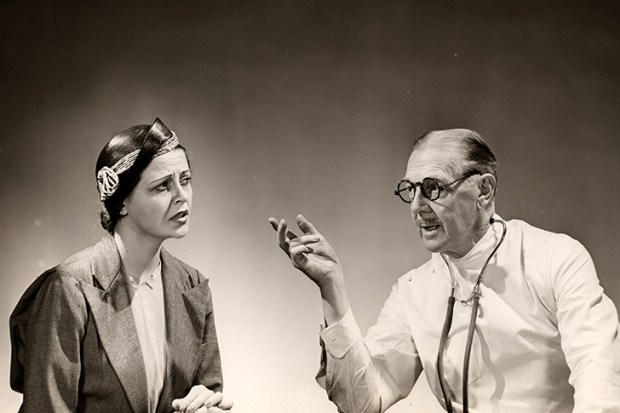Ayelet Waldman is, surely, not the first writer to have scrolled through a list of ‘Books of the Year’ and become increasingly enraged to find her own book not on it. But where other authors manage to keep a dignified silence (sticking pins into critics’ byline photos in private), Waldman demonstrates a lively lack of self-control, and often reaches for her phone. In 2014 she fired off a volley of increasingly furious tweets when the New York Times omitted her novel Love and Treasure from its list of ‘Notable Books’. Her book was, she railed, ‘fucking great’. It felt ‘fucking demoralising’ to be excluded when her book had garnered ‘better reviews’ than many on the list.
As a fan of the Berkeley-based author’s taboo-busting writing about motherhood, my response is conflicted. I enjoy the savage wit and energy of her outbursts, knowing I’d be mortified if I behaved like that myself. Inevitably Waldman is mortified. She quickly deleted those tweets, but not before the gossip site Gawker had grabbed a screen shot and mocked her as a ‘famous emotion-haver’.
Despite holding down a responsible job as a lawyer for years and raising four children, she has suffered from a lifetime of ungovernable feelings, diagnosed first with bipolar disorder (like her father) and then with premenstrual dysphoric disorder (which allowed her to keep vague tabs on herself until the menopause kicked in). At 52, she worries that her volatility is damaging her family. Over the years she has tried all the usual talking therapies, sedatives, anti-depressants and hippy retreats, but nothing has really reined her in.
At her lowest she became addicted to Ambien, lost most of her memories of her youngest child, and tried to set up a replacement wife for her husband in the event of her death. It’s terrifying and hilarious to read the text exchanges she instigated with her husband (the novelist Michael Chabon) while dosed up on this entirely legal, socially approved prescription medication: ‘Sex in nit sir. Very sky adequate’, she typed as he repeatedly begged her to turn the phone down. ‘You talk me’ she insists. ‘Before you I was imonible. Now in on accordion monorail.’
So her new book finds her reaching for the unusual and illegal. Intrigued by the revived scientific interest in the possible mental stabilisation and creative inspiration offered by hallucinogens, she decides to try ‘microdosing’ on LSD for a month. An increasing number of Silicon Valley geeks (inspired by LSD fan Steve Jobs) claim it helps them think outside the box without going out of their boxes, after all. It doesn’t just help singers like John Lennon write about sparkly, flying women. Engineers and physicists have found it enhances their problem-solving too.
As a former federal public defender, hypochondriac and disdainer of the counter-culture, Waldman is wary of illegal drugs. She always told her kids that the most likely and damaging side-effect of scoring chemicals on the street is arrest and imprisonment. But after she puts the word out among the local academic community a little bottle arrives from ‘Lewis Carroll’.
Taking only a tenth of the amount that would constitute a standard LSD ‘trip’ on a schedule advised by the celebrated psychologist and psychedelic researcher James Fadiman, Waldman gains more control over her moods and improved creative flow across the month. In charting her experiment she makes an entertaining guide to facts about LSD that surprised her: it’s far less dangerous (in both the long and short term) than most other drugs; it may well be more helpful for people with anxiety and depression than most ‘popular’ antidepressants; it’s allowed terminally ill people to accept their final days in peace and gratitude; taking it doesn’t turn you into a hippy, maaan.
Obviously, Waldman is an unreliable case study and she knows it. She wanted this experiment to work and she wanted to get a book out of it. She’s had happy, productive periods in her life before. Sometimes she shies away from the harder science with a ‘blah blah blah’. But she proves a sharp debunker of the myths that have accrued around a potentially life-saving chemical whose star is clearly on the rise. Sadly for those of us who enjoy a little vicarious online drama, it does also appear to have made Waldman a more considered tweeter.
Got something to add? Join the discussion and comment below.
Get 10 issues for just $10
Subscribe to The Spectator Australia today for the next 10 magazine issues, plus full online access, for just $10.
You might disagree with half of it, but you’ll enjoy reading all of it. Try your first month for free, then just $2 a week for the remainder of your first year.














Comments
Don't miss out
Join the conversation with other Spectator Australia readers. Subscribe to leave a comment.
SUBSCRIBEAlready a subscriber? Log in